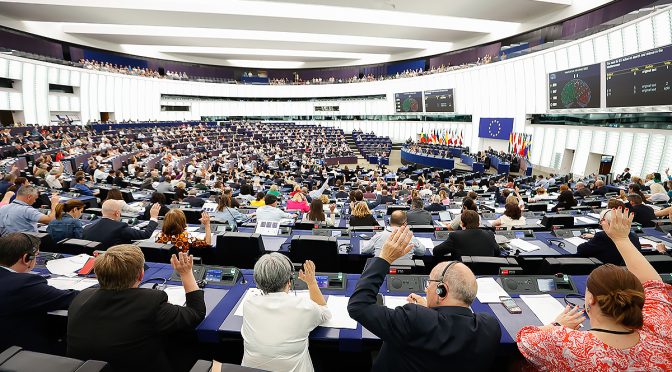On Tuesday the European Parliament will vote on its position for the negotiations with European Commission and Member States on the Net-Zero Industry Act (NZIA). MEP Christian Ehler, drafting the Parliament’s position, has put forward a proposal which supports a strong European wind industry to deliver on Europe’s climate and energy security objectives in the lead Committee on Industry, Research and Energy (ITRE). The European wind industry calls on all MEPs to endorse the ITRE mandate.
Europe needs to build around 30 GW of new wind farms every year up to 2030 to reach its climate and energy security goals. The continent has a world class wind industry. But the European wind supply chain has been struggling with inflationary pressures, uncertainty on wind expansion volumes and poor auction design. All of which have undermined its ability to plan and invest in new manufacturing sites to deliver on the EU’s energy security and climate targets.
To strengthen and expand European clean tech manufacturing the European Commission presented the Net Zero Industry Act (NZIA) earlier this year. Commission President Ursula von der Leyen confirmed the EU’s determination in her State of the Union Speech, when she said: “the future of our clean tech industry has to be made in Europe.”
“The EU wants to deliver its Green Deal with wind made in Europe. Tomorrow the Parliament can agree tangible measures to do just that, by boosting the European wind supply chain. Indexing auction tariffs to reflect higher input costs, ensuring fair competition on the European market, and pushing back against ‘race to the bottom’ auctions will all help. This is the right course of action. It’s a matter of security, jobs and autonomy”, says WindEurope Chief Policy Officer Pierre Tardieu.
Auction design needs to support European supply chain expansion
The ITRE position includes important changes to wind energy auction design. It sets clear and mandatory prequalification criteria for auctions. This includes new rules for cybersecurity and data residency which will guarantee that Europe’s critical energy and grid infrastructure cannot be an easy target for cyberattacks.
The ITRE Committee also proposed an inflation indexation mechanism. Inadequate indexation is a big problem right now. Wind developers have had to cancel large offshore wind projects because of it. They had won an auction with a given price. But high inflation then made turbines and components much more expensive – putting the economic viability of wind energy projects at risk. Indexing wind energy auctions to reflect input costs will help bridge this financial gap and make sure projects can go ahead. Such indexation mechanism would apply for the time required to sign all supplier contracts.
The ITRE Committee further wants Member States to stop using negative bidding in their auctions. This is when wind farm developers have to pay the Governments for the right to build a wind farm. Some Governments have introduced negative bidding to their auctions as a way to make a quick buck. But negative bidding just makes the EU’s energy transition more expensive. It creates additional costs for developers which have to be passed on to the supply chain or the electricity consumers. And the money paid in negative bidding rounds is money companies cannot invest in other wind energy projects.
The Council now also needs to finalise its negotiating mandate on the Net Zero Industry Act. Trilogues, i.e. negotiations between the European Parliament and Member States with the support of the European Commission, on a final deal will take place in Q1 2024. In the final negotiations it will be critical that the adopted measures are fine-tuned, and that the supply chain resilience approach is technology specific and fit for purpose.


